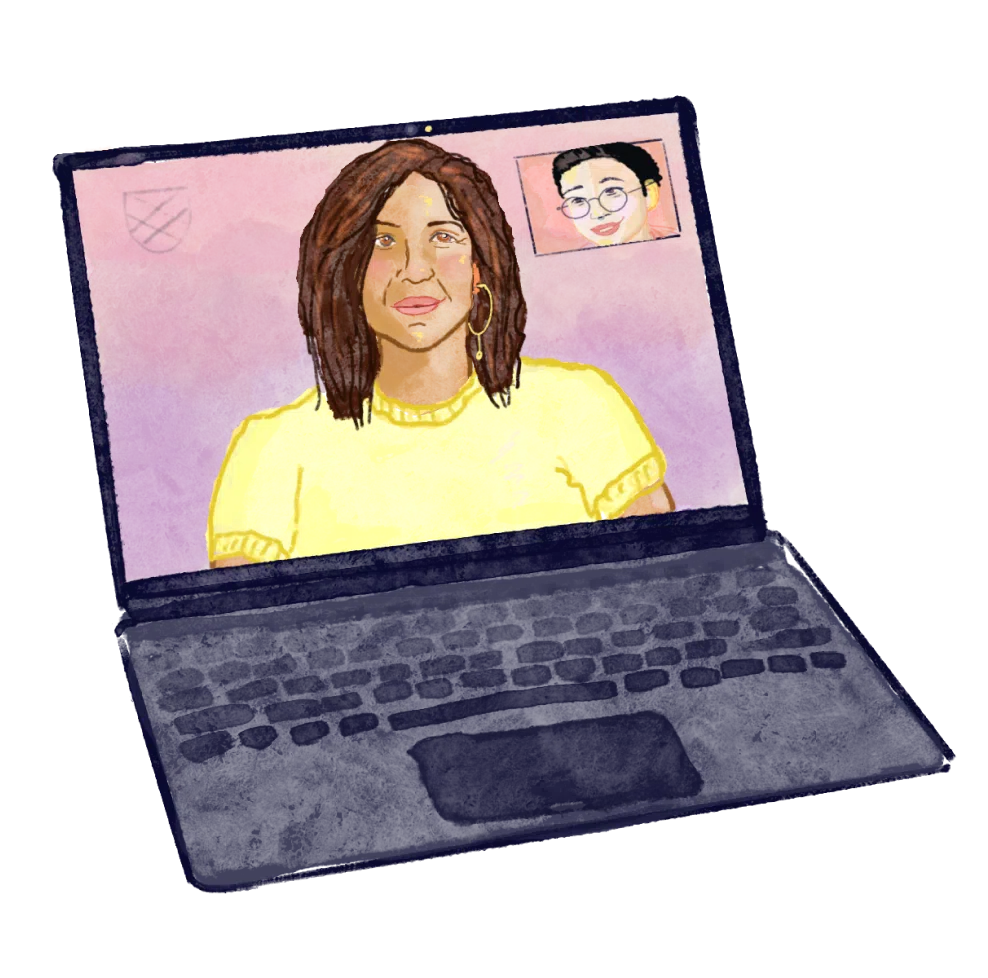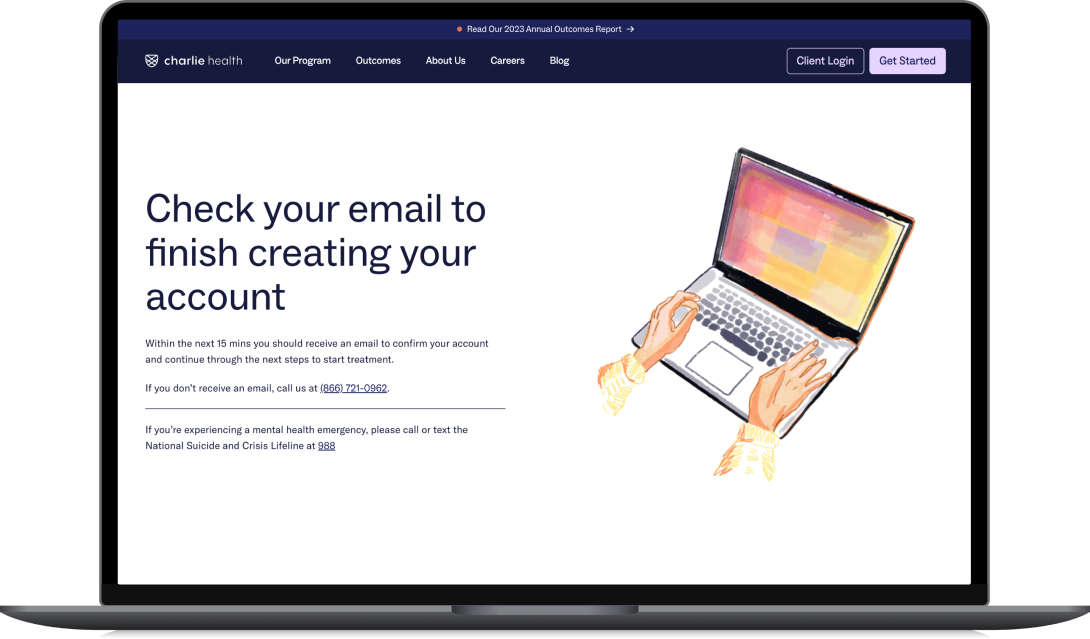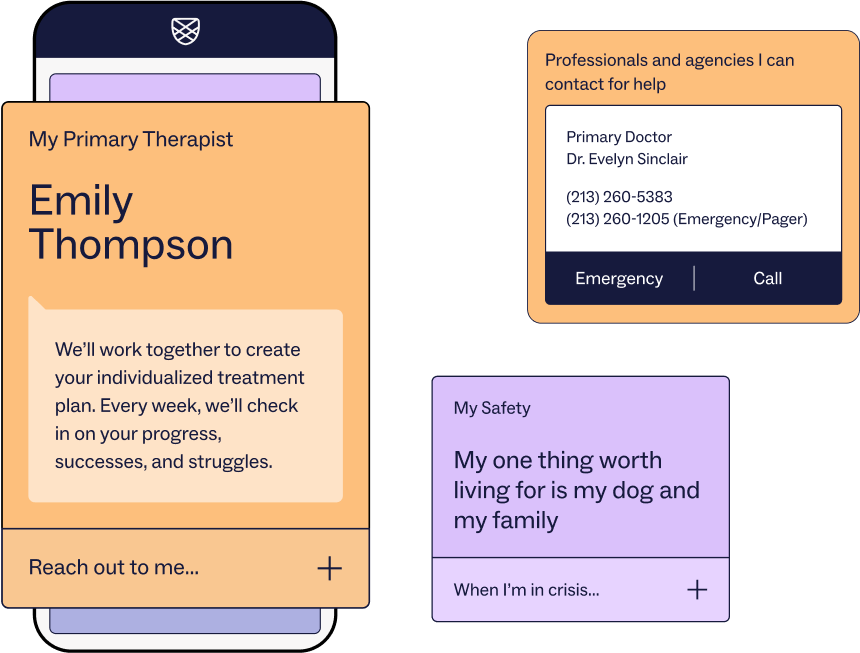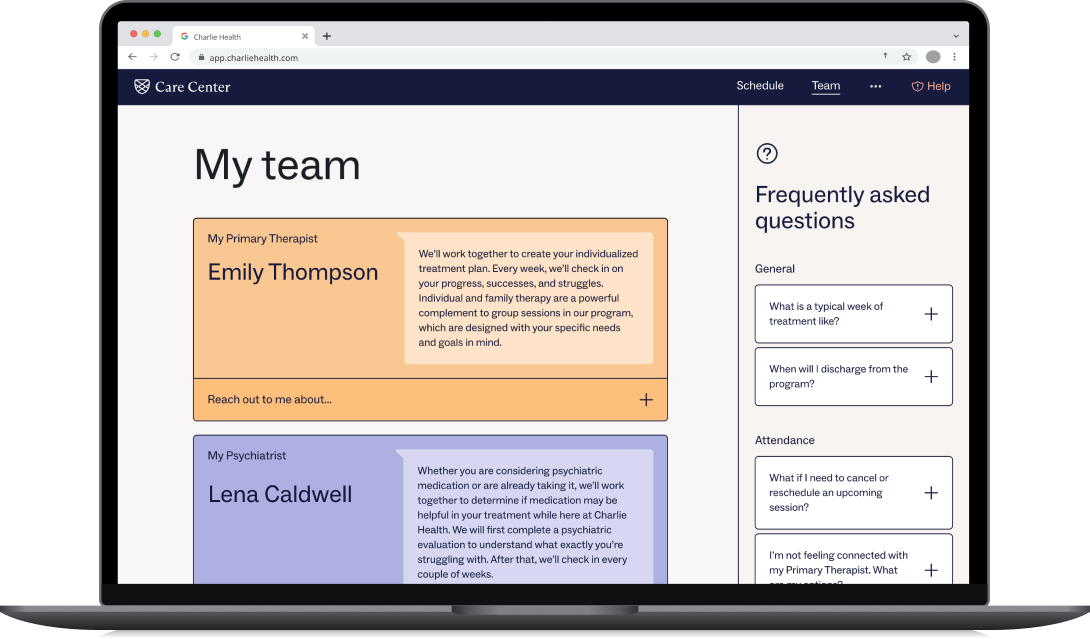Depression therapy in Raleigh
More than half of North Carolinians with a mental condition don’t receive the treatment they need.*
We’re here to help.
Depression is a mental health condition characterized by persistent sadness, loss of interest in activities, and significant disruptions to daily life and emotional well-being.
Depression is one of the most prevalent mental health conditions, affecting millions worldwide. Seeking professional treatment is essential to prevent worsening symptoms and improve quality of life.
What is depression?
Depression is a mood disorder that affects how a person feels, thinks, and handles daily activities. There are various forms of depression, such as clinical depression, persistent depressive disorder, bipolar depression, and seasonal affective disorder. Depression symptoms can range from mild to severe, with some people experiencing treatment-resistant depression that requires specialized care. Without effective treatment, depression can significantly impact relationships, work, and overall well-being.
Common symptoms include:
- Fatigue, changes in appetite, sleep disturbances, headaches, muscle aches, digestive issues, and unexplained pain.
- Persistent negative thoughts, difficulty concentrating, indecisiveness, memory problems, excessive guilt, and feelings of worthlessness.
- Prolonged sadness, hopelessness, irritability, mood swings, emotional numbness, and increased sensitivity to rejection.

Getting started with depression therapy in Raleigh is simple

 Check your insurance
Check your insurance
Call our Admissions Team 24/7 or fill out our quick form to learn more about our depression therapy options in Raleigh and verify your insurance
 Personalized match
Personalized match
Get connected with a clinical team that understands your needs


 Personalized match
Personalized match
Get connected with a clinical team that understands your needs

Depression symptoms, causes, and treatment options
Key signs of depression
Depression symptoms can include a persistent depressed mood, loss of interest in hobbies, overwhelming sadness, difficulty maintaining relationships, and feelings of emptiness. Some people experience situational depression triggered by life events, while others develop persistent depressive disorder with long-term symptoms. Severe cases may lead to suicidal thoughts, highlighting the need for early intervention and professional treatment.
Primary causes of depression
Depression can be caused by a combination of genetic, biological, environmental, and psychological factors. Chemical imbalances in the brain, a family history of mood disorders, chronic stress, trauma, and co-occurring mental health conditions such as anxiety disorders or bipolar disorder can contribute to its development. Life events like grief, financial struggles, or major transitions can also trigger depressive symptoms.
Treatment options for depression
Depression treatment typically includes a combination of therapy, medication, and lifestyle changes. Cognitive behavioral therapy (CBT) and other forms of talk therapy help people develop coping strategies, while antidepressants can regulate mood imbalances. In more severe cases, inpatient treatment may be necessary, but for many, intensive outpatient programs (IOP) provide structured, effective treatment that allows clients to receive additional support while maintaining daily routines.
How Charlie Health treats depression in Raleigh
Individualized treatment plans
Evidence-based modalities
Multidisciplinary support
Immediate availability
Virtual access
In their words
“Charlie Health is a curated experience that changed my perspectives on mental health, being that it was much more than paperwork or armchair diagnosis and instead a true focus on mental health. I have the tools and experiences I need. Thank you for allowing me to be seen, heard, and validated throughout the entire process. The program very much justifies the price for any new clients. Charlie Health can and will work with you as they did with me.”
-Baymax L., Charlie Health Alum
FAQS about depression in Raleigh at Charlie Health
See All FAQsWhat is depression?
Depression is a serious mental health condition that affects mood, thoughts, and behavior, often causing prolonged sadness, a loss of motivation, and difficulty managing daily life.
What are the common symptoms of depression?
Depression symptoms vary but often include physical symptoms like fatigue, headaches, and appetite changes; mental symptoms like difficulty concentrating and excessive guilt; and emotional symptoms such as persistent sadness and mood swings. Some forms of depression, like atypical depression and bipolar depression, present unique challenges that require specialized treatment.
How is depression treated?
Depression treatment often involves cognitive behavioral therapy (CBT), other forms of talk therapy, and medication such as antidepressants. For those with treatment-resistant depression, alternative approaches may be explored. Intensive outpatient programs (IOP) provide additional structured support to help people manage more severe depressive symptoms effectively.
Is depression treatment available in Raleigh?
Charlie Health provides comprehensive anxiety treatment in Raleigh through virtual Intensive Outpatient Programs (IOP), allowing clients to receive personalized care from the comfort of home.
How do I start therapy for depression at Charlie Health?
If you or a loved one are struggling with depression, Charlie Health is here to help. Charlie Health’s virtual Intensive Outpatient Program (IOP) provides mental health treatment for people dealing with serious mental health conditions, including both the emotional and physical symptoms of depression. Our expert clinicians incorporate evidence-based therapies into individual counseling, family therapy, and group sessions. With support, managing your mental health and healing from depression is possible.
Ready to get started with virtual depression therapy in Raleigh with Charlie Health?
*National Institute of Mental Health